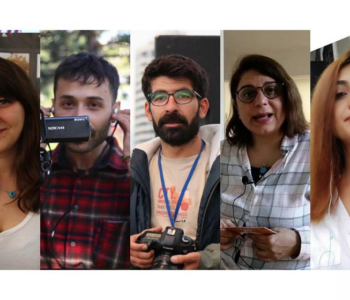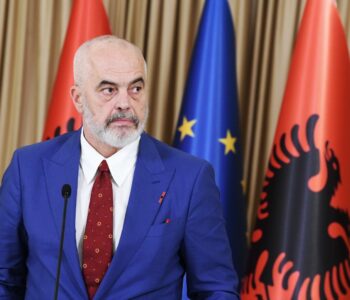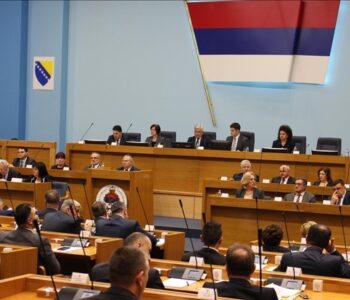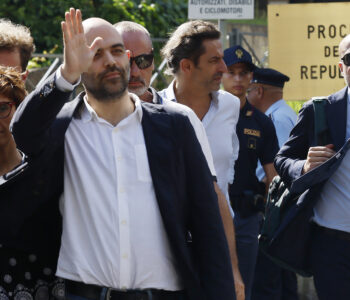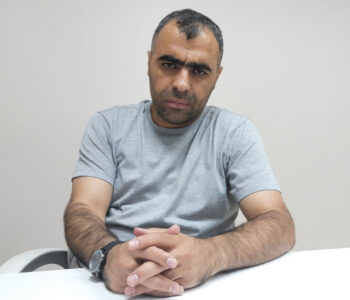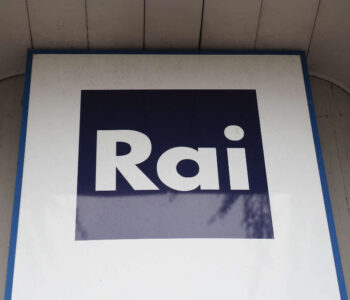 Library
Library
Turkey: International groups condemn fifth imprisonment order against journalist…
Turkey: International groups condemn fifth imprisonment order against journalist Barış Pehlivan
The undersigned media freedom, freedom of expression, human rights, and journalists’ organisations strongly condemn the latest incident of judicial harassment against journalist Barış Pehlivan and reiterate calls to the Turkish authorities to respect media freedom.
Turkish translation available here.
On August 2, journalist Barış Pehlivan was informed via an SMS from the Ministry of Justice that he was expected to turn himself over to the Marmara Low Security Correctional Institution (formerly Silivri) between August 1-15, 2023. Pehlivan has already been incarcerated four times due to his journalism, two of those being one day behind bars in February and May 2023 for the same sentence. This order would mark his fifth time behind bars.
We are concerned by the repeated judicial harassment of Pehlivan, who is exercising his fundamental right to free speech as a journalist in Turkey.
Due to his coverage of the funeral of an MIT (Turkish National Intelligence Organization) officer in Libya, Pehlivan was arrested on March 6, 2020 and taken to court, alongside journalists Aydın Keser, Barış Terkoğlu, Eren Ekinci, Hülya Kılınç, Ferhat Çelik and Murat Ağırel, and was sentenced to 3 years and 9 months in prison on charges of exposing classified intelligence documents.
On May 12, 2020, Turkish authorities postponed the sentences of thousands of inmates due to Covid-19, but a last-minute clause excluded primarily the charges that journalists face, keeping all journalists, including Pehlivan, in prison.
After spending 6 months behind bars, journalist Barış Pehlivan was released on September 9, 2020 on parole on the condition that he not be subject to another court case. After his release, Pehlivan commented on the court’s decision by saying: “There is no crime in this case. This case aims to punish our journalism.”
On July 15 this year, the Turkish Parliament enacted a measure drafted by the governing coalition regulating parole and probation rules. According to this regulation, Pehlivan also gains the right to benefit from parole, his lawyer reports. When Pehlivan’s lawyer filed a request for information on the decision that Pehlivan submits himself to the correctional institution, the response indicated that the prison administration had disregarded the relevant clauses of the legislation from July 2023.
Shortly after he co-authored a book titled “SS” (referring to the initials of former Minister of Interior Süleyman Soylu) in April 2023, Pehlivan was targeted by then-advisor of the Minister of Interior on the grounds of having ties to organised crime, and another one of his articles became the subject of an insult case. While the trial process has not begun for the latest court case that was opened in April 2023, it has been seen as an attempt to end Pehlivan’s parole.
In mid-July, 15 journalists were released from prison, while as of August 7, 20 journalists still remain behind bars in Turkey. In the past year 232 alerts regarding Turkey were reported on the Mapping Media Freedom database, impacting 329 journalists, media workers or outlets, which shows the dire conditions independent journalism operate under in the country. All together, these alerts make up a quarter of all the reported alerts in Europe.
Acts of judicial harassment targeting journalists hinder media freedom and people’s right to access information.
We call upon the Turkish authorities to reverse the decision to reimprison Pehlivan and end the systematic judicial harassment against him and other journalists.
We reiterate our solidarity with the imprisoned journalists. Journalism is not a crime and every minute a journalist spends behind bars is a violation of freedom of expression and media freedom.
This statement was coordinated by the Media Freedom Rapid Response (MFRR), a Europe-wide mechanism which tracks, monitors and responds to violations of press and media freedom in EU Member States and candidate countries.

Türkiye: Uluslararası kuruluşlar gazeteci Barış Pehlivan’ın beşinci defa parmaklıklar ardına girecek olmasını kınadı
Aşağıda imzası bulunan medya özgürlüğü, ifade hürriyeti, insan hakları ve gazetecilik örgütleri; gazeteci Barış Pehlivan’a yönelik son yargı tacizini şiddetle kınamakta ve Türkiye yetkililerine medya özgürlüğüne saygı gösterme yönündeki çağrılarını yinelemektedir.
Gazeteci Barış Pehlivan’a 2 Ağustos’ta Adalet Bakanlığı tarafından gönderilen SMS ile 1-15 Ağustos 2023 tarihleri arasında Marmara Açık Ceza İnfaz Kurumu’na (eski adıyla Silivri) teslim olması gerektiği bildirildi. Gazeteciliği nedeniyle ikisi 2023 yılının Şubat ve Mayıs aylarında aynı cezadan birer gün olmak üzere şimdiye kadar dört kez cezaevine giren Pehlivan, hakkındaki son kararın bozulmaması halinde beşinci kez hapse girmiş olacak.
Bir gazeteci olarak temel ifade hürriyeti hakkını kullanan Pehlivan’a yönelik tekrar eden yargı tacizinden endişe duymaktayız.
Pehlivan, Libya’da yaşamını yitiren bir Milli İstihbarat Teşkilatı (MİT) görevlisinin cenaze törenini haberleştirdiği için 6 Mart 2020 tarihinde gazeteciler Aydın Keser, Barış Terkoğlu, Eren Ekinci, Hülya Kılınç, Ferhat Çelik ve Murat Ağırel ile birlikte tutuklanarak mahkemeye çıkarılmış ve gizli istihbarat belgelerini ifşa etmekten 3 yıl 9 ay hapis cezasına çarptırılmıştı.
12 Mayıs 2020’de Türkiye yetkilileri Covid-19 salgını nedeniyle binlerce mahkûmun cezasını erteleme kararı almış, ancak son dakikada eklenen bir madde ile özellikle gazetecilerin karşı karşıya kaldığı suçlamalar bu ertelemenin kapsamının dışında bırakılmıştı. Bunun sonucunda Pehlivan da dahil olmak üzere tüm tutuklu gazeteciler cezaevinde kaldı.
Gazeteci Barış Pehlivan, parmaklıklar ardında altı ay geçirdikten sonra, başka bir davaya konu olmamak kaydıyla, 9 Eylül 2020 tarihinde denetimli serbestliğe ayrıldıi. Pehlivan tahliyesinin ardından mahkemenin kararını şu sözlerle yorumladı: “Bu davada suç yok. Bu davada bizim gazetecilik hayatımızı cezalandırma amacı var.”
15 Temmuz 2023’te iktidar koalisyonu tarafından hazırlanan şartlı tahliye ve denetimli serbestlik kurallarını düzenleyen bir tasarı mecliste kabul edildi. Barış Pehlivan’ın avukatı, bu düzenlemeye göre Pehlivan’ın da denetimli serbestlikten yararlanma hakkı kazandığını bildirdi. Ancak avukatı Pehlivan’ın cezaevine teslim olması kararına ilişkin bilgi talebinde bulunduğunda, cezaevi yönetiminin Temmuz 2023 tarihli düzenlemenin ilgili maddelerini göz ardı ettiği anlaşıldı.
Pehlivan, Nisan 2023’te “SS” başlıklı (eski İçişleri Bakanı Süleyman Soylu’nun adının baş harflerine atıfla) bir kitap yazdıktan kısa süre sonra, dönemin İçişleri Bakanı danışmanı tarafından organize suçlarla bağlantısı olduğu gerekçesiyle hedef gösterilmiş, bir başka yazısı da hakaret davasına konu olmuştu. Nisan 2023’te açılan yeni davanın yargılama süreci henüz başlamamış olsa da, bu dava Pehlivan’ın denetimli serbestliğini sona erdirmeye yönelik bir girişim olarak yorumlandı.
12 Temmuz’da tutuklu yargılanan 15 gazeteci tahliye edildi, ancak 7 Ağustos itibariyle Türkiye’de halen 20 gazeteci cezaevinde bulunuyor. Son 12 ay boyunca Mapping Media Freedom veri tabanında Türkiye ile ilgili 232 vaka rapor edildi. Bu vakalar 329 gazeteci, medya çalışanı ve kuruluşunu ilgilendiriyordu. Bu da ülkede bağımsız gazeteciliğin içinde bulunduğu zorlu koşulları göstermektedir. Türkiye kaynaklı bu vakaların tamamı Avrupa’dan bildirilen tüm vakaların dörtte birini oluşturuyor.
Gazetecileri hedef alan yargı tacizi uygulamaları, medya özgürlüğünü ve halkın bilgiye erişim hakkını engellemektedir.
Türkiye yetkililerine; Barış Pehlivan’ın denetimli serbestlik şartlarını oluşturmadığı gerekçesiyle 15 Ağustos’ta yeniden cezaevine girmesi yönündeki karardan vazgeçilmesi ve Pehlivan ile diğer gazetecilere yönelik sistematik yargı tacizine son verilmesi yönünde çağrıda bulunuyoruz.
Tutuklu gazetecilerle dayanışma içinde olduğumuzu bir kez daha yineliyoruz. Gazetecilik suç değildir. Gazetecilerin parmaklıklar ardında geçirdiği her dakika ifade ve basın özgürlüğü ihlalidir.
